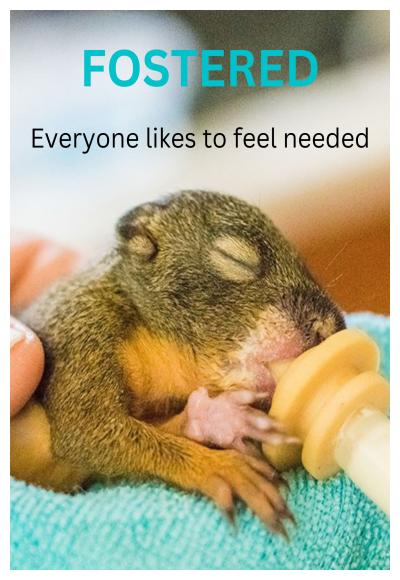
Synopsis/Details
This historical drama feature weaves the stories of three mothers in different times and places.
In 1942 Kyiv, Tatiana, a young Ukrainian woman, lives with her 2 year old daughter Mishka and mother Anna while her husband Nicholai is fighting for the Red Army in the war.
At the hospital where she works as a nurse there is a warning given that Nazi soldiers are stealing women off the street. After nearly being captured, Tatiana decides to switch to working nights to remain safe. When her shift is delayed into the morning, Tatiana is captured on her way home and thrown in a truck, then a train, where she eventually ends up in a work camp in Germany.
In 1984 Kyiv, a woman named Oksana, her husband Segei and their two daughters pick up radio reception to listen to the broadcast of the Soviet boycotted Olympic games.
Across the world in 1984 Toronto, a woman named Susan watches the same games on T.V. with her husband Victor and daughters, who become enamored with gymnastics in the process.
In the camp, Tatiana befriends two Polish women, Katia and Elena, who teach her their language. When Tatiana attempts an escape during the fall harvest and is brutally beaten, she admits she was trying to get home to her daughter and tells them about Oksana (nicknamed Mishka). We get a glimpse of her mother and daughter back home trying to survive without her.
In Toronto, Susan is frustrated with the mess in the kids room and gets them to give her some unworn clothing. Susan's daughters balance their gymnastics classes and weekend Ukrainian lessons, which they have no enthusiasm for, and she faces judgment from the other mothers who feel she doesn’t belong. When they're given the chance to try out for the competitive team, Susan is torn between letting them chase their own dream and her desire to keep them enrolled in the classes.
In Kyiv Oksana struggles financially. They can't afford new clothes for their rapidly growing children. When her husband notices a promising new job prospect in another town, they know he must apply, but they now must come up with the bribe money as well.
Winter comes to the work camp and everyone is hungry. Tatiana struggles with memories of the Holodomor, where she watched her father starve to death. Elena strikes up a relationship with a young Nazi soldier in exchange for extra food and some needed companionship, while Katia and Tatiana comfort each other. When a prisoner breaks their leg in the field, Tatiana's quick nursing skills impress the soldiers, who assign her to run an infirmary with Katia, getting them out of the harsh work in the fields. When Tatiana finds a map in the office she plans another escape, but when Elena reveals she's pregnant with the soldier's baby, she stays to deliver Elena's daughter Luba. Immediately after her birth, Elena is forced to work the fields harvesting with her baby in a sling.
As Christmas approaches in Kiev, Oksana and Sergei receive a care package from Susan and plan which items to use and which to sell on the black market to raise their bribe money. When their daughter notices ‘Barbies’ written on the list but can’t find them, Oksana and Sergei tell them the Soviets must have stolen them.
On Christmas Eve in Toronto the girls greet their grandma Katia, who showers them with gifts, including Barbies, in the camp the women baptize baby Luba, and in both 1940’s and 1980’s Kiev they search for the first star and eat their holiday meal. When morning comes, Oksana’s girls awaken ecstatically to find St. Mykolai has placed Barbies under their pillows.
When winter comes back to the camp, the women are once again hungry. Baby Luba cries all night, unable to get enough milk from her already malnourished mother. When spring comes, Elena works the fields no longer wearing her baby sling, and a small cross sits on the edge of the forest, marking Luba’s grave.
Sergei gets the coveted job, solving all their family’s financial problems. Oksana decides to remain in Kiev with the girls and just visit him so that they don’t have to uproot their lives.
Susan makes the decision to put the girls in competitive gymnastics, even if it means quitting their Ukrainian classes but is upset when she catches the girls mocking the language as they play in their room.
Several Red Army soldiers are captured and sent to the camp, Nicholai being one of them. He is passionately reunited with Tatiana and they plan to escape together, only to be liberated at the end of the war. As they wait for transport home in the displacement camp, there are offers to immigrate to Canada for skilled workers, but only for non Soviet workers, as Stalin refuses to let them leave. Katia mulls over moving to Canada or returning to her mother, while Elena wants to stay with her new boyfriend. When Stalin’s men come looking for Ukrainians to capture them as traitors, Tatiana pretends to be Polish and Nicholai hides in the woods. After they leave, they escape and attempt the trip home. Tatiana is too weak to make it, so she sends Nicholai on his way to their daughter and she returns to the camp. Nicholai travels across a great distance and arrives home to be reunited with their daughter.
In Kiev Oksana and the girls bid Sergei farewell, everyone excited about his new job. As his bus draws closer to his destination, we see his dream job is actually at the Chernobyl power plant.
On the day of the girls last Ukrainian class, Susan chews out the snooty Ukrainian mothers in their language, and makes a dramatic exit. At home she celebrates her birthday with a cake that has her new legal name ‘Svetlana’. When Katia questions why she would change her name, Susan asks her why she was given that name in the first place when they don’t even know anyone named Susan.
A letter arrives for Mishka from Tatiana. She explains how she returned to the camp and Stalin’s men came looking for her again. We see Tatiana traveling by train and Katia by ship. Katia watches other families as she waits alone for processing at the immigration center in Halifax, but when they call her, we see it’s actually Tatiana standing there, visibly pregnant. She has assumed Katia’s name, language and birthplace to escape. Her intake officer wears a name tag that says Susan. In Canada Tatiana rocks her new baby Susan and sings her the same lullaby she sang to Mishka. In her letter she states that like Mishka, she also has her father’s eyes.
Story & Logistics
Story Conclusion:
Ambiguous
Linear Structure:
Non-linear
Cast Size:
Several
Locations:
Several
Characters
Lead Role Ages:
Female Adult, Female Middle Aged
Hero Type:
Unfortunate
Villian Type:
Pure Evil
Advanced
Subgenre:
Holocaust
Equality & Diversity:
Female Centric, Female Protagonist, Immigration Focused, Passes Bechdel Test
Time Period:
Cold War (Soviet Union and United States, and their allies, 1945–1989 or 1991), The Eighties (1980–1989), World War II (1939–1945)
Country:
Canada, Ukraine







